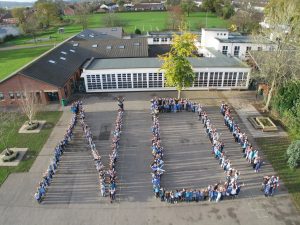School reopens
The school seeks to help each child to become a useful, active and caring member of the community. Sensible discipline is valued highly in the school and parents are expected to support the teacher or other school employee in any action taken. Children are expected to be polite in speech and action and everyone is expected to behave in a way that will not cause distress, discomfort or harm to others. Generally our rules are kept to a minimum but are needed, for the safety of children and others, to prevent damage or loss of property and for the efficient running of the school.




